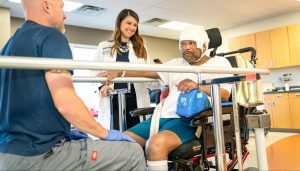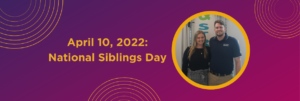Aphasia Centers can Improve Quality of Life for People with Severe Aphasia
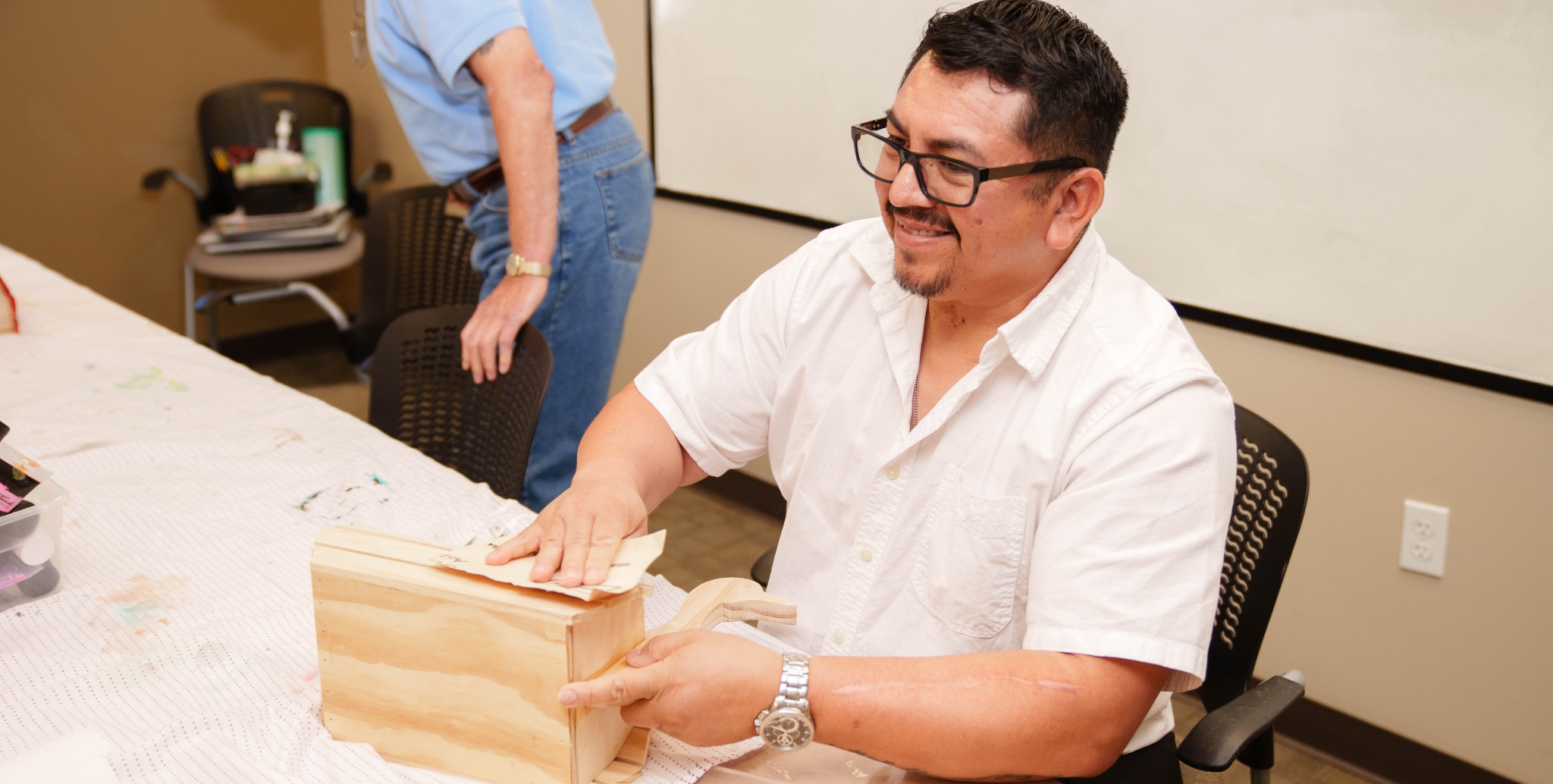
Back to physical health resource hub
A two-year study was conducted by Brooks Rehabilitation, Jacksonville, Fla., in collaboration with the Department of Biobehavioral Sciences, Teachers College, Columbia University, New York, N.Y., to better understand if and how aphasia centers help people with aphasia.
Aphasia is a disorder in which damage to the language-dominant hemisphere of the brain causes an individual to lose the ability to understand and produce written or spoken language. The damage typically happens in the brain’s left hemisphere. Most cases of aphasia are due to stroke, tumors or traumatic injury.
The findings, published in the American Journal of Speech-Language Pathology, determined that treatment for people with aphasia through dedicated centers can help improve communication and quality of life for participants. These positive results were also true for people with severe aphasia who had been post-stroke for several years.
Much-Needed Research on Aphasia Centers
The study’s purpose was to determine if people with aphasia experienced improved use of language, functional communication and quality of life through attending and participating in an aphasia center. Research on aphasia centers has been limited as long-term outcomes and functional improvements are rarely assessed.
The research took place at the Brooks Rehabilitation Aphasia Center (BRAC), Jacksonville, Fla. BRAC implements the life participation approach to aphasia (LPAA). This is an immersive and holistic method that emphasizes autonomy, community-based group interactions and naturalistic conversational skills.
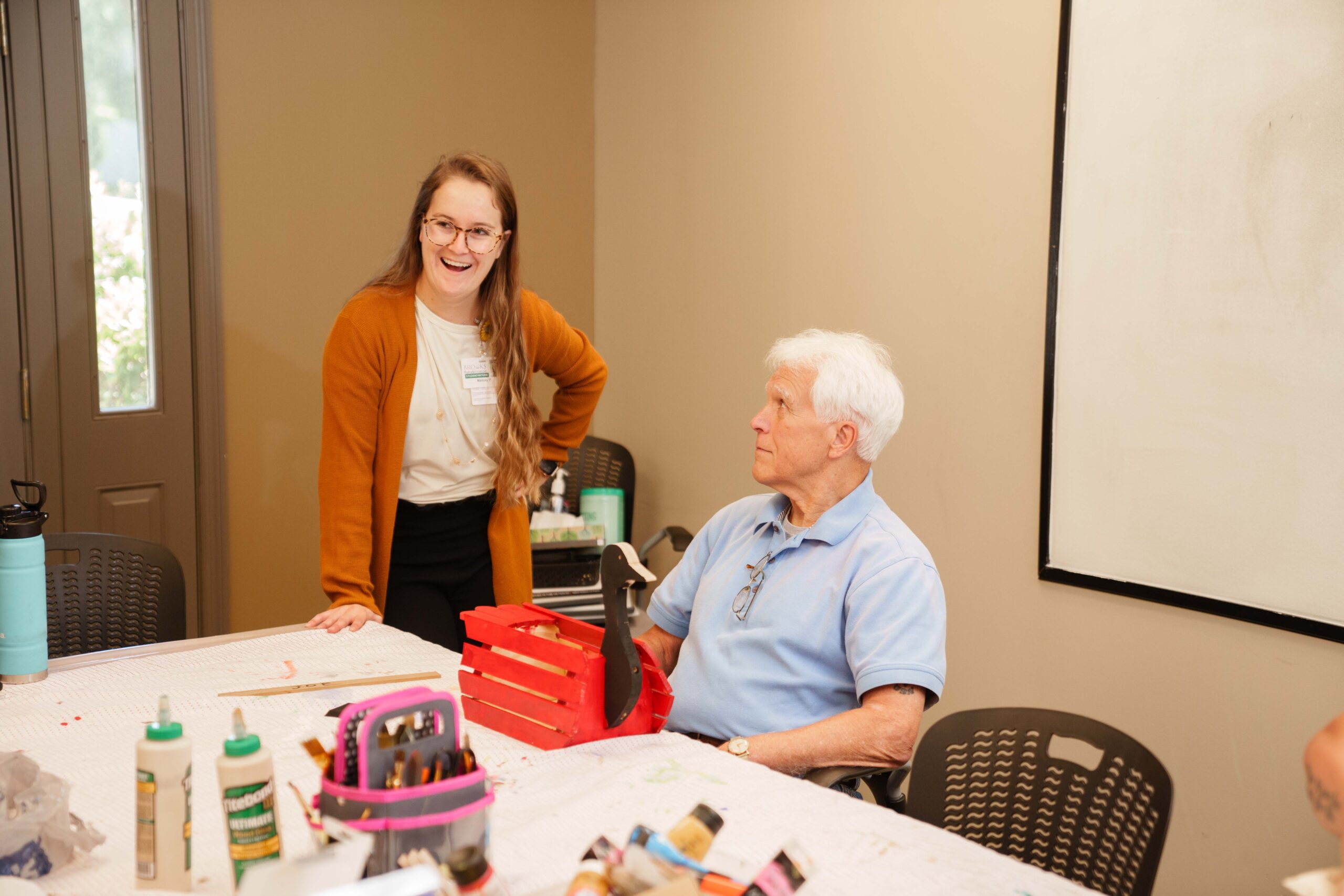
The center also provides opportunities to participate in activities like groups discussing books and movies, music therapy, journaling, as well as going to restaurants and museums.
Study Findings
Twenty-seven people with aphasia, along with a similar number of communication partners (e.g., spouses), were enrolled in the study.
The findings of the study indicate that participation in aphasia centers can result in significant changes in quality of life, communication skills, language abilities and overall confidence. These individuals also did not participate in any other speech services during the time of the study.
Analysis of the data showed that people with aphasia significantly improved in all five areas assessed after both year one and year two.
This included an increased ability to:
- Name daily objects
- Understand language
- Participate in conversation and explain important items in more detail.
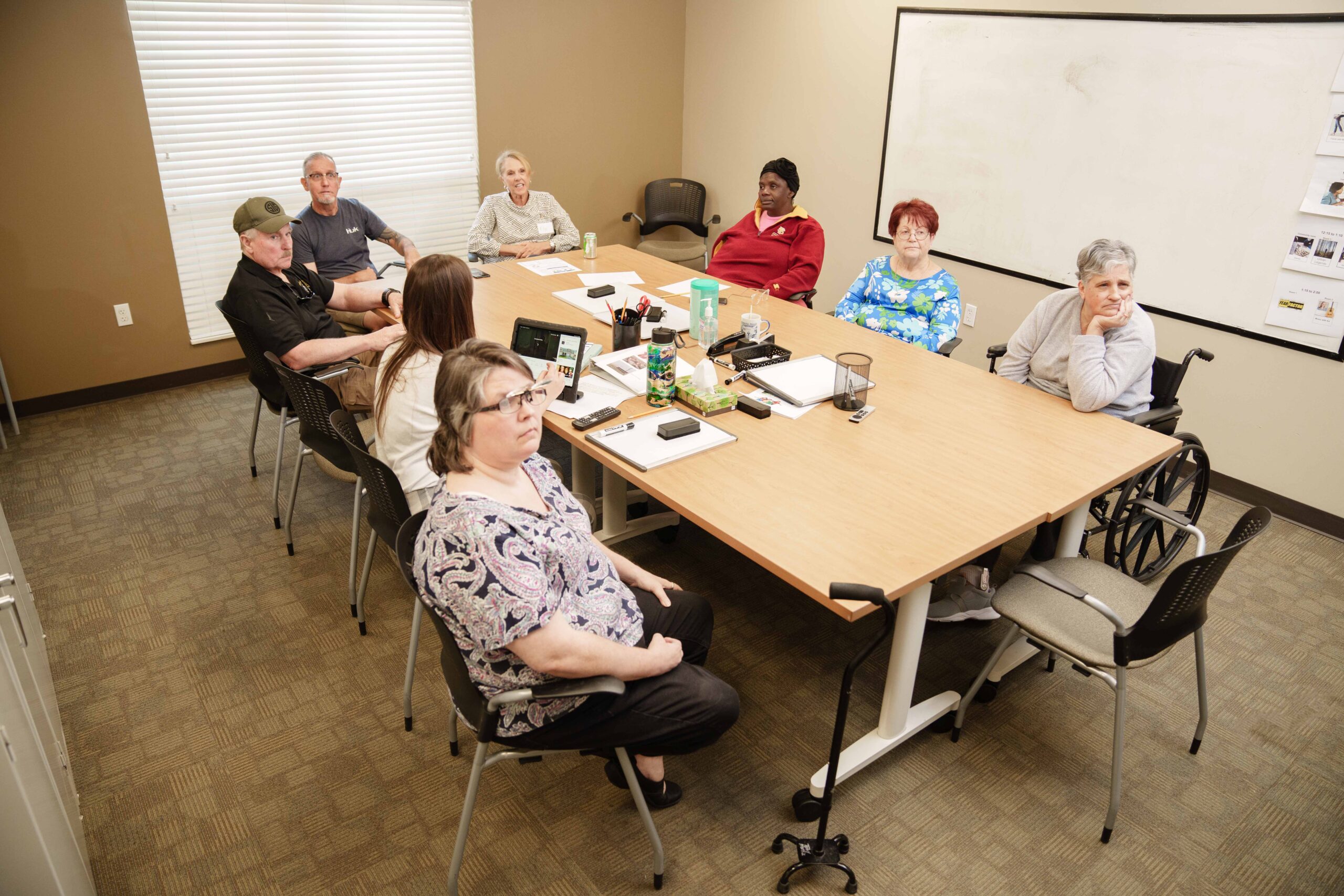
The study suggests that BRAC’s approach to rehabilitation is beneficial for people with aphasia and their family members. Notably, most of the participants had severe aphasia, and the average post-onset for participants was nearly four years. This means that people with aphasia who had a stroke many years prior were still able to improve their quality of life and communication skills.
Interestingly, there was no correlation between attendance and test scores — meaning increased attendance was not linked to higher test scores — hinting that the quality of the rehabilitation may be more important than quantity.
Why Aphasia Treatment Centers Work
What makes an aphasia center so unique and important is that it is more than the sum of its parts. At its heart, an aphasia center is about fostering connections between people. As a result, the conversations and relationships that develop are an integral part of their recovery and improvement.
Aphasia can severely impact a person’s relationships, identity and mental health. As people with aphasia participate less in life and become socially isolated, they can start experiencing loneliness and depression. This results in a substantial decrease in their quality of life, as well as that of their support and social network.
As people with aphasia once again reengage in life, aphasia centers help them learn new communication skills that can help them function further outside the center. All of this empowers people with aphasia to reimagine their identity and enhance their quality of life in living successfully with aphasia.
The Need for Aphasia Centers Heightened
Studies like this one, show a need for dedicated aphasia centers. Despite growing evidence of success for multi-faceted socialization and language groups as treatment, few facilities offer these services.
One main reason is there is insufficient funding from third-party payers as well as limited funding overall. This study hopes to inspire other organizations and treatment facilities to open and support aphasia centers across the world.
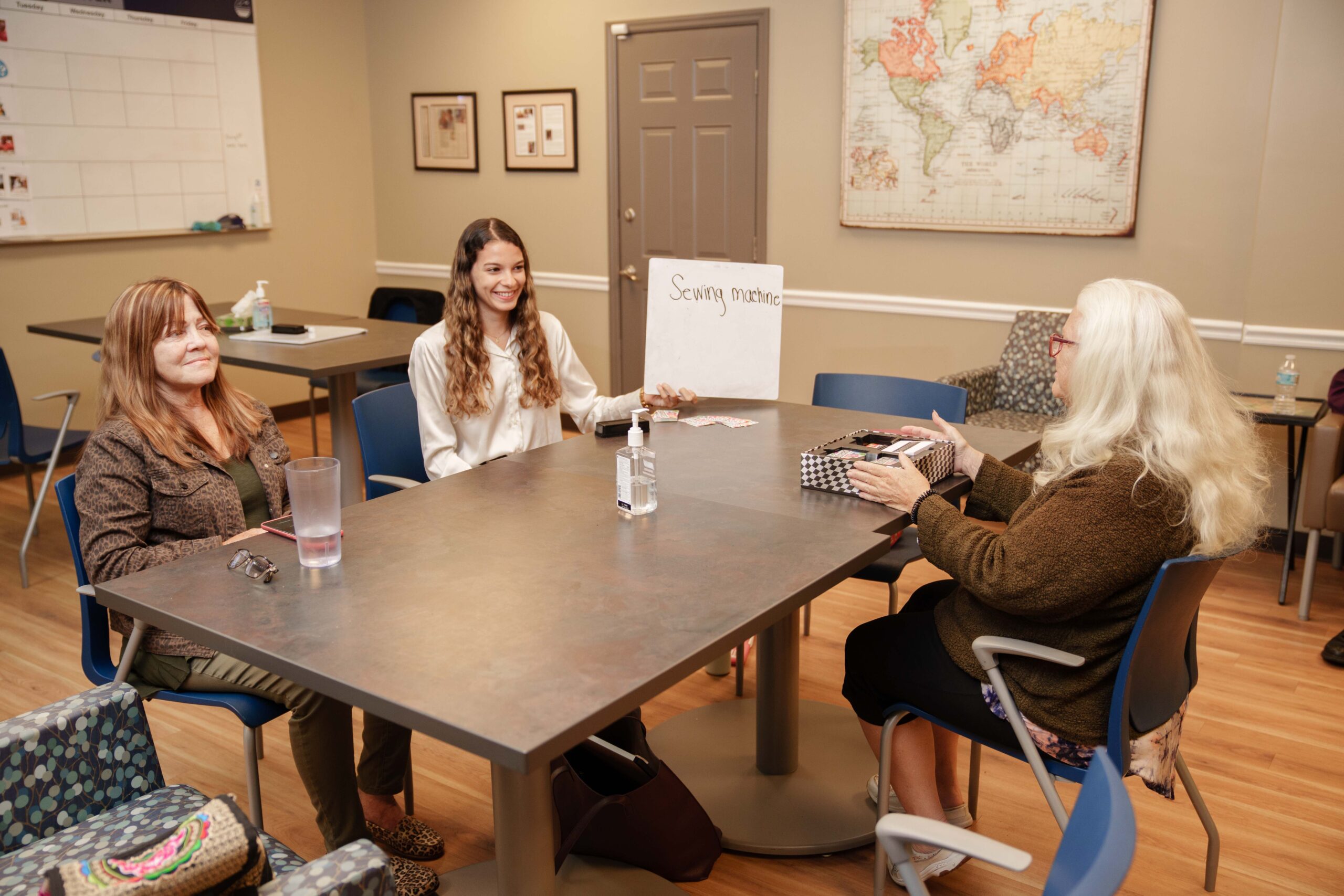
The Brooks Aphasia Center has recently expanded its conversation aphasia groups to Orange Park, Fla., and Daytona, Fla., to serve more people with aphasia and their families.
Brooks Aphasia Center
The BRAC community aphasia program provides people with aphasia an opportunity to connect with others through interactive and creative programs, groups and activities in a supportive community environment.
The program provides an environment to help build relationships with others with aphasia, families and communication partners. It encourages multi-modality communication techniques, which means using multiple communication methods such as writing, gestures, body language and devices, and increases confidence to help people with aphasia learn new ways to communicate and live successfully.
For more information, email [email protected] or call (904) 345-6780.
